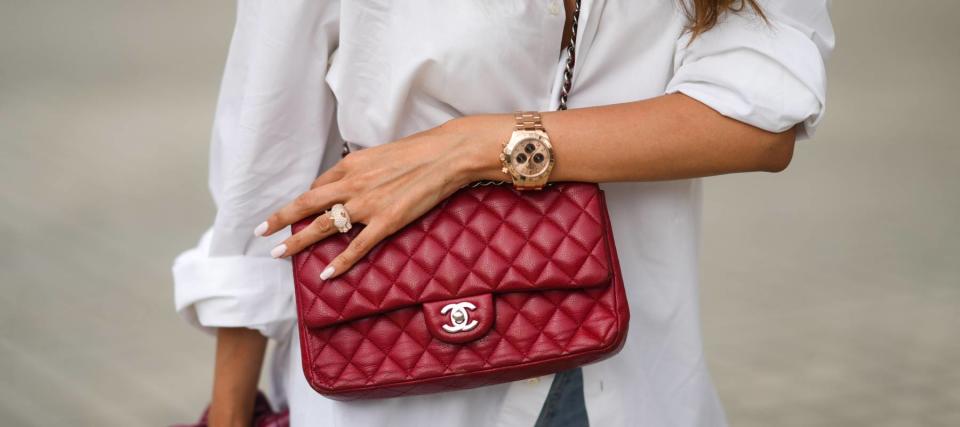True wealth is 'invisible': Looking poor can be key to being rich — here's why

The way some folks see it these days, the new key to being rich is looking poor.
Self-styled "self-improvement enthusiast" Rosa Diaz-Casal contends in a Medium blog published in May that "true wealth is invisible" and many rich individuals maintain their fortunes by living modestly "with no visible indicators of their money. Think blue jeans and a T-shirt driving an old Honda."
Don't miss
Commercial real estate has beaten the stock market for 25 years — but only the super rich could buy in. Here's how even ordinary investors can become the landlord of Walmart, Whole Foods or Kroger
Cost-of-living in America is still out of control — use these 3 'real assets' to protect your wealth today, no matter what the US Fed does or says
These 5 magic money moves will boost you up America's net worth ladder in 2024 — and you can complete each step within minutes. Here's how
YouTuber Damon Cassidy released a video in May espousing the importance of looking poor via frugality. He recalls, as a former bank employee, how he once thought the luxury items others showed off were an indication of wealth until he realized the opposite was true.
"The individuals [who] had the expensive and flashy items were not those [with] the high cash balances but instead the high debt balances," he said.
Of course, some born into riches or who find wealth by way of entrepreneurial success can print Benjamins much faster than they’ll ever spend them. But the intriguing wisdom behind looking poor is that it easily translates into much lower expenses. Imagine no car payments to shackle you, no credit cards to pay off, no five-star hotels while traveling to the next town over. Now, take that saved money and ask yourself how you’ll turn it into even more via investing.
Put another way, who really has more dough? The guy who shells out $2,000 a month on his tricked-out sports car or the woman who drives a thrifty 2009 Toyota Corolla that’s 100% paid for?
Frugality's virtues
Many material possessions — coveted collectibles and fine art come to mind — can more than recoup the money spent on them. Still, you can't enjoy any small fortune tied up in Beanie Babies or a Jackson Pollock until you sell.
Moreover, paintings and pop culture artifacts may not keep up with conventional investments. Over the last 20 years, the S&P 500 has seen an annual average return of 9.89%, assuming all dividends were reinvested, according to the Official Data Foundation. That means a $1,000 investment in an S&P 500 index fund 2004 would have grown to around $6,900 in 2024.
Read more: Car insurance rates have spiked in the US to a stunning $2,150/year — but you can be smarter than that. Here's how you can save yourself as much as $820 annually in minutes (it's 100% free)
While certain cars qualify as collectibles, the typical luxury automobile is often a financial clunker. According to Kelley Blue Book, most new vehicles lose about 20% of their value in the first year and after five years are often worth only about 40% of their original value.
Take a tip from one of the richest men in the world, Warren Buffett, who's worth $130 billion, according to Forbes. The frugal investor still lives in the same home he bought in 1958 for $31,500, which is around $342,000 in today's money.
Luxury's trappings
Clothes, watches and swank luggage rank among the luxury items big spenders love. But as a whole, they can drain a budget fast. A person can spend thousands of dollars on these everyday items, or they can get some perspective on their practical value. The late billionaire Charles Feeney felt value was more important than flashing one's wealth. He flew coach, wore a $15 watch and used plastic bags instead of a briefcase.
Speaking of watches, as the late Charlie Munger — Warren Buffett's longtime business partner and a billionaire in his own right — once quipped: "Who in the hell needs a Rolex watch?"
At the Daily Journal's annual shareholders meeting in 2022, Munger also stated: "The world is not driven by greed. It's driven by envy."
Munger boasted that he conquered his envy. And if you can do the same while adopting further habits of the rich, you may find yourself well ahead of the game.
What to read next
Car insurance premiums in America are through the roof — and only getting worse. But 5 minutes could have you paying as little as $29/month
Jeff Bezos and Oprah Winfrey invest in this asset to keep their wealth safe — you may want to do the same in 2024
Stop crushing your retirement dreams with wealth-killing costs and headaches — here are 10 'must-haves' when choosing a trading platform (and 1 option that has them all)
This article provides information only and should not be construed as advice. It is provided without warranty of any kind.

 Yahoo Finance
Yahoo Finance 